 First edition | |
| Author | William McIlvanney |
|---|---|
| Publisher | Allen & Unwin |
Publication date | 6 February 1975 |
| Pages | 320 |
| ISBN | 9780048231185 |
Docherty is the third novel by William McIlvanney, first published in 1975. [1]
 First edition | |
| Author | William McIlvanney |
|---|---|
| Publisher | Allen & Unwin |
Publication date | 6 February 1975 |
| Pages | 320 |
| ISBN | 9780048231185 |
Docherty is the third novel by William McIlvanney, first published in 1975. [1]
The book is set in a fictional mining town in Scotland in the early part of the 20th century, and it relates the struggles of a miner called Tam Docherty and his family. It opens with a prologue set in 1903 in which Tam's family and home are introduced and his wife Jenny gives birth to the youngest of her four children, Conn. Book One opens a few years later and provides a fuller introduction to the family. We learn that Tam is a lapsed Catholic while Jenny is a Protestant; we meet the eldest son Mick, the middle son Angus, the daughter Kathleen and her future husband Jack, as well as Jenny's father Mairtin and Tam's father, Old Conn, a devout Catholic. Tam has a hostile encounter with the Catholic priest Father Rankin. Kathleen marries Jack. Conn goes to school, where he is punished for fighting and using vernacular Scots. Conn knows of his father's respect for education, but "...against that went Conn's sense of the irrelevance of school, its denial of the worth of his father and his family[...]." This section of the novel ends with Conn entering puberty as he explores the countryside around Graithnock in the spring of 1914.
In Book Two the outbreak of war has a very direct impact on the Docherty family when Mick announces that he plans to join the army with his friend Danny Hawkins. This is against the wishes of Mick's girlfriend May as well as those of both Jenny and Tam, who cites Labour campaigner Keir Hardie's opinion that it is "a capitalist war". Mick ignores their protestations and enlists with Danny, who is later killed in action on the western front. Mick survives but is badly wounded and loses the sight of one eye and his right arm. Meanwhile, Conn scares his parents when he falls through the glass roof of the local mill. Kathleen has had a baby, Alec, and Tam tries unsuccessfully to impress on Conn the desirability of staying on at school instead of going down the mine, which is what Conn wants - although in fact Tam knows that the family cannot afford to do without Conn's earnings. At Christmas, Conn receives as presents from the rest of the family the clothing and equipment he will need as a miner: some time after this, Conn starts work at the pit alongside Angus and their father. Tam visits Mick in a military hospital and, on his return, with difficulty informs Jenny and the rest of the family of Mick's injuries. What has happened to Mick has a profound effect on Tam, who loses "the purpose of his own life" and starts drinking more heavily. Mick returns home and feels distant from his family; eventually he gets a job as a watchman at the mill. The war ends, and Mick shows no sign of elation but speaks cryptically of another, ongoing war. Book Two finishes with New Year 1920 being celebrated in the Docherty household with family and friends while Conn secretly has a sexual encounter with the much older Jessie Langley.
As Book Three opens, Angus accosts Jack as he leaves work and accuses him of violently abusing Kathleen. Jack tells him it is none of his business and Angus punches him. Later, Angus informs Tam that he plans to move to a different pit and operate a squad of miners on a contract to the mine-owners. Tam sees this as exploitation, but Mick asks why Angus shouldn't take the opportunity to make more money and a heated quarrel ensues between Tam and Mick. Angus and Conn have been visiting dance halls and one night a visitor comes to the Docherty home, the father of Sarah Davidson,a girl who Angus has made pregnant. Tam assures the man that Angus will marry his daughter but Angus shocks Tam by saying he does not intend to. Conn and Mick have to hold Tam back from battering Angus. Tam tells Angus he can marry the girl or move out. Angus decides to move out and moves into a local doss-house. There has been a lock-out at the mine for eleven weeks and the miners are now going back to work for the same wages as before. Angus's wedding takes place, but he is marrying Annie, not Sarah. Tam refuses to attend the wedding. One evening some time later Tam returns home drunk and is baited by Mick to the point where Tam violently turns the table over, shocking everyone. Shortly after this a rock-fall in the mine traps Tam under a heap of fallen rock and kills him. His lifeless body is brought to the surface by his comrades. Typically Tam saves the life of another of the miners while losing his own. Jenny is distraught. Knowing Tam's rejection of religion, Mick and Conn decide against a religious funeral service and Jenny agrees, despite the horror of Tam's Catholic relatives. Conn tells Angus he wants to fight him because of what Angus had done to their father; Angus reluctantly agrees and the pair meet early on a Sunday morning for an intense but inconclusive physical battle that leaves them both exhausted. Mick tells Conn he has joined the Communist Party and tells him no ruling class ever gave its power away; Conn says he has no desire to 'smash' people, he just wants them to see how good people like Tam were. In the last chapter, a group of Tam's friends reminisce about what a good man he was.
McIlvanney said the novel was "an attempt to democratise traditional culture, to give working-class life the vote in the literature of heroism." [2]
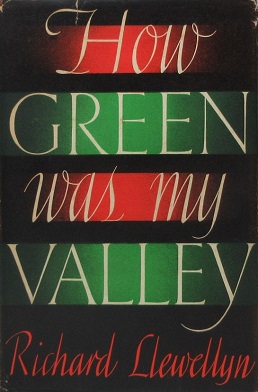
How Green Was My Valley is a 1939 novel by Richard Llewellyn, narrated by Huw Morgan, the main character, about his Welsh family and the mining community in which they live. The author had claimed that he based the book on his own personal experiences but this was found to be untrue after his death; Llewellyn was English-born and spent little time in Wales, though he was of Welsh descent. Llewellyn gathered material for the novel from conversations with local mining families in Gilfach Goch.

The History of Tom Jones, a Foundling, often known simply as Tom Jones, is a comic novel by English playwright and novelist Henry Fielding. It is a Bildungsroman and a picaresque novel. It was first published on 28 February 1749 in London and is among the earliest English works to be classified as a novel. It is the earliest novel mentioned by W. Somerset Maugham in his 1948 book Great Novelists and Their Novels among the ten best novels of the world.

Forever Amber (1944) is an historical romance novel by Kathleen Winsor set in 17th-century England. It was made into a film in 1947 by 20th Century Fox.

William McIlvanney was a Scottish novelist, short story writer, and poet. He was known as Gus by friends and acquaintances. McIlvanney was a champion of gritty yet poetic literature; his works Laidlaw, The Papers of Tony Veitch, and Walking Wounded are all known for their portrayal of Glasgow in the 1970s. He is regarded as "the father of Tartan Noir" and as Scotland's Camus.
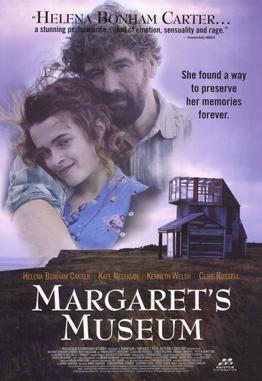
Margaret's Museum is a 1995 Canadian-British drama directed by Mort Ransen and based on Sheldon Currie's novel The Glace Bay Miners' Museum.
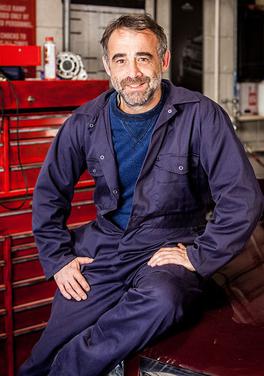
Kevin Webster is a fictional character from the British ITV soap opera Coronation Street. Portrayed by Michael Le Vell, the character first appeared on-screen during the episode airing on 19 October 1983. Le Vell was suspended from the soap in February 2013 due to allegations of sexual offences, with scenes he had already filmed cut from broadcast. Le Vell was found not guilty of all charges in September 2013, and briefly returned in early 2014, before taking another 3-month break from the show and returning once again.
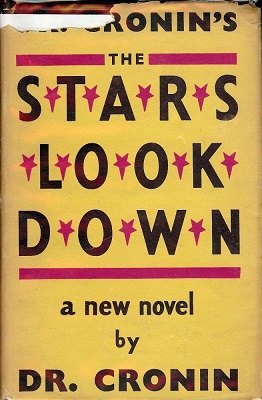
The Stars Look Down is a 1935 novel by A. J. Cronin which chronicles various injustices in an English coal mining community. A film version was released in 1940, and television adaptations include both Italian (1971) and British (1975) versions.

Tuck Everlasting is an American children's novel about immortality written by Natalie Babbitt and published by Farrar, Straus and Giroux in 1975. It has sold over 5 million copies and has been called a classic of modern children's literature.

A Prayer for the Dying is a 1987 thriller film about a former IRA member trying to escape his past. The film was directed by Mike Hodges, and stars Mickey Rourke, Liam Neeson, Bob Hoskins, and Alan Bates. The film is based on the 1973 Jack Higgins novel of the same name.
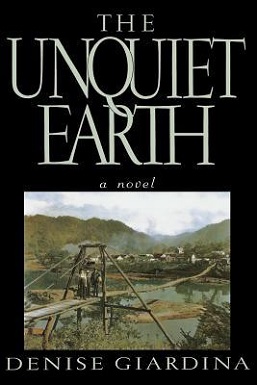
The Unquiet Earth is Denise Giardina's third novel. It was published in 1992 and won the W.D. Weatherford Award that year.

A Woman of Substance is a British-American three-part television drama serial, produced in 1984. It is based on the 1979 novel of the same name by Barbara Taylor Bradford.
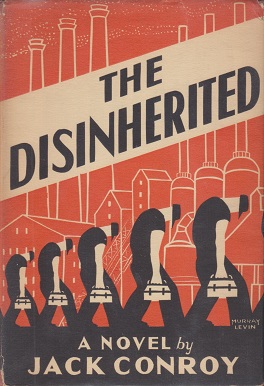
The Disinherited is a 1933 proletarian novel written by Jack Conroy. Conroy wrote it initially as nonfiction, but editors insisted he fictionalize the story for better audience reception. The novel explores the 1920s and 30s worker experience through the eyes of Larry Donovan.
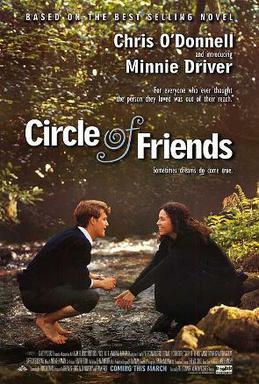
Circle of Friends is a 1995 film directed by Irish filmmaker Pat O'Connor, and based on the 1990 novel of the same name written by Maeve Binchy.
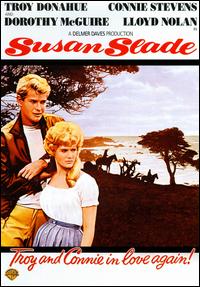
Susan Slade is a 1961 American Technicolor drama film directed by Delmer Daves and starring Troy Donahue, Connie Stevens, Dorothy McGuire and Lloyd Nolan. Based upon the 1961 novel The Sin of Susan Slade by Doris Hume, concerns a well-to-do teenage girl who secretly has a baby out of wedlock. With cinematography by Lucien Ballard, the film was released by Warner Bros.

Carnival is a 1946 British drama film about a ballet dancer of the Edwardian era, directed by Stanley Haynes and starring Sally Gray, Michael Wilding, Stanley Holloway and Jean Kent. It is based on the 1912 novel of the same name by Compton Mackenzie, which had previous been made into a 1932 film version Dance Pretty Lady by Anthony Asquith. It was shot at Denham Studios with sets designed by the art director Carmen Dillon.

Rote Erde is a German television film series in 13 parts, the 1983 and 1989, all directed by Klaus Emmerich. The camera was led by Joseph Vilsmaier and Theo Bierkens. The title music was composed by Irmin Schmidt. The German premiere was on (ARD) channel at 23 October 1983. The last episode was screened on 4 March 1990.
A Family Secret was the fourth episode of the third series of the British television series, Upstairs, Downstairs. The episode is set in 1912.

Ross Poldark is the first of twelve novels in Poldark, a series of historical novels by Winston Graham. It was published in 1945. The novel has twice been adapted for television, first in 1975 and then again in 2015. Sales of the novel increased by 205% after the premiere of the 2015 television adaptation.